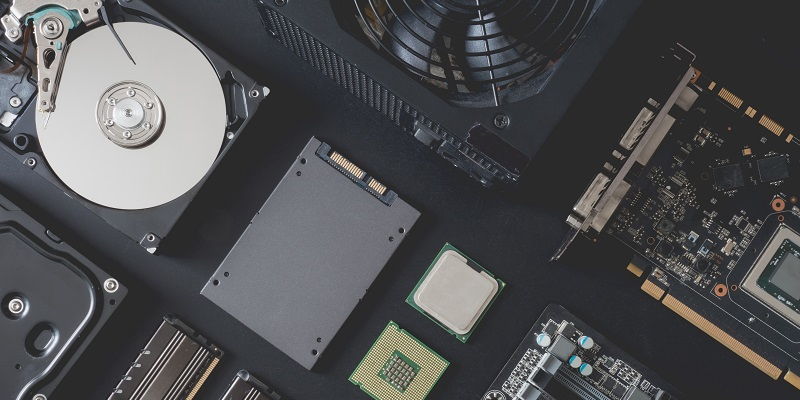In the ever-evolving world of technology, finding greener alternatives is essential for reducing carbon emissions and minimizing environmental impact. A recently published academic paper has sparked discussion by suggesting that hard disk drives (HDDs) may be more environmentally friendly than solid-state drives (SSDs) when considering the manufacturing process. This article delves into the details presented in the paper, evaluating the carbon emissions associated with HDDs and SSDs, and highlighting the need for a comprehensive assessment of their environmental impact.
Carbon emissions during manufacturing
The paper emphasizes that the highest carbon emissions occur during the manufacturing process, with SSDs generating significantly more carbon emissions than HDDs of equal capacity. It estimates that the production of storage devices led to a staggering 20 million metric tonnes of CO2 emissions in 2021 alone. However, the paper does not provide a breakdown of emissions between SSDs and HDDs specifically.
Cost comparison
The study notes that SSDs have approximately 8 times higher embodied costs than HDDs with identical capacity. One of the key reasons behind this discrepancy is the reliance on semiconductors in SSD manufacturing, which are significant contributors to carbon production. In contrast, HDD manufacturing is less reliant on semiconductors, making it a potentially greener option.
Operational power consumption comparison
Aside from manufacturing, the Tannu and Nair study also examines the operational power consumption of HDDs and SSDs. The findings reveal a notable difference in power consumption over a five-year lifespan. A 1TB HDD consumes approximately 184 kW of power, while a 1TB SSD consumes a mere 57 kW. This discrepancy suggests that SSDs are more energy-efficient during usage, potentially reducing carbon emissions during their lifespan.
Lifespan and warranty considerations
One factor that the initial study overlooked is the difference in lifespan between HDDs and SSDs. In general, HDDs have a shorter lifespan compared to SSDs. It is worth noting that no hard disk manufacturer offers a 10-year warranty for mechanical drives. This aspect is essential to consider when evaluating the overall environmental impact of storage devices, as a longer lifespan could contribute to a reduced carbon footprint.
Importance of a comprehensive evaluation
While the initial study sheds light on the manufacturing process and operational power consumption, a more comprehensive evaluation is crucial in making an informed judgment. Alongside manufacturing emissions and operational efficiency, the entire lifecycle of storage devices, energy efficiency, lifespan, and potential for reducing physical footprint also need to be considered. Evaluating these factors holistically provides a more accurate understanding of the environmental impact of storage technologies.
The academic paper suggesting that HDDs could be greener than SSDs due to the manufacturing process raises important considerations. Although SSDs have higher embodied costs and potentially lower operational power consumption, the shorter lifespan and reliance on semiconductors in their production contribute to greater carbon emissions. To accurately evaluate the environmental impact of storage devices, it is necessary to assess the entire lifecycle, including manufacturing emissions, operational efficiency, lifespan, and the potential for reducing physical footprint. Only through a comprehensive assessment can we make informed decisions to promote greener technology and mitigate environmental harm in the digital age.

